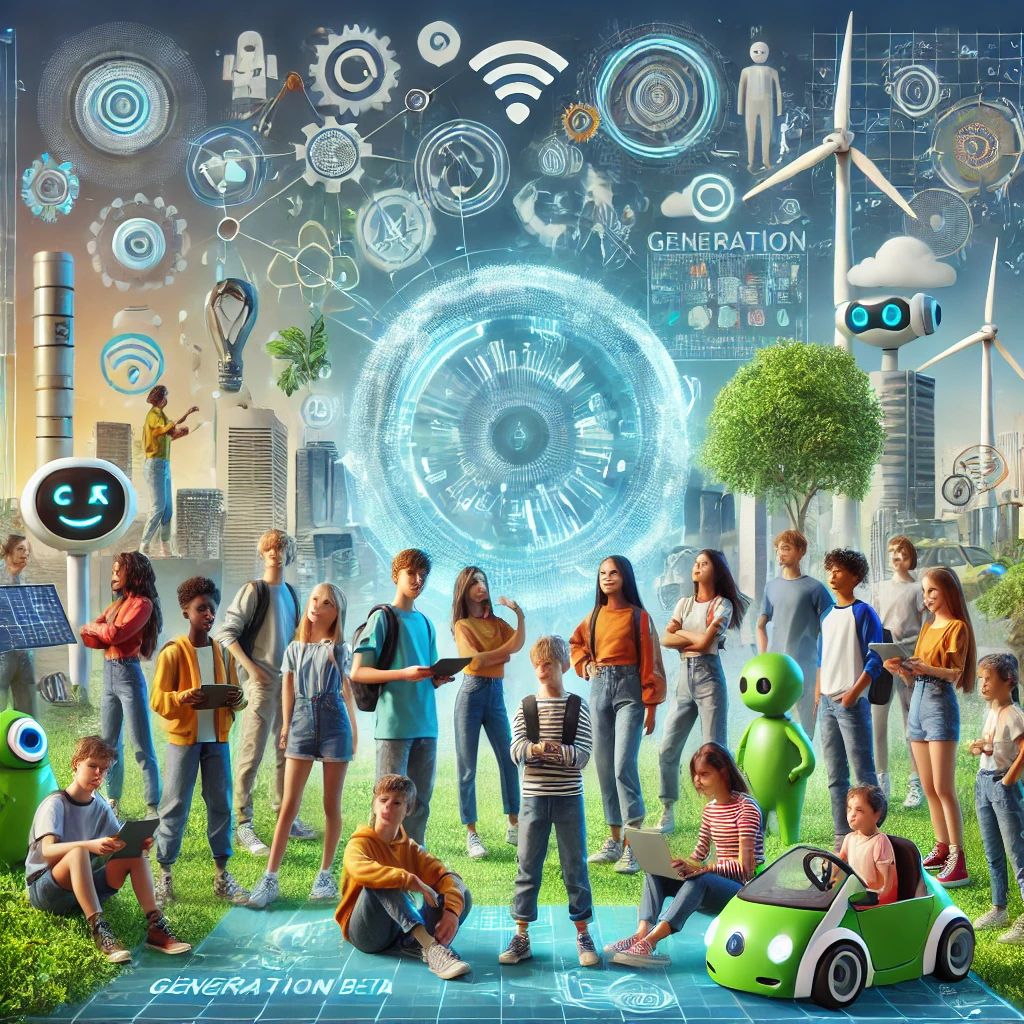
Generation Beta will face a range of significant challenges as they grow up in an increasingly complex and interconnected world. One of the most urgent issues they will have to confront is climate change. As environmental problems become more severe and widespread, Generation Beta will be tasked with finding innovative solutions to combat climate change and protect the planet for future generations. They will likely be exposed to the impacts of climate change firsthand, including extreme weather events, pollution, and rising sea levels. This awareness will drive them to adopt sustainable practices early on, both in their personal lives and as they enter the workforce. They will have to rethink traditional systems of consumption, production, and energy use to create more eco-friendly alternatives. Their challenge will be not only responding to the current environmental crisis but also actively shaping policies and technologies that ensure a healthier planet for years to come.
Another challenge Generation Beta will face is mental health and digital balance. Growing up in a world where technology is omnipresent, they will experience the pressures of constant connectivity through social media, messaging apps, and digital entertainment. While these tools offer opportunities for communication and learning, they also bring the risk of digital burnout, anxiety, and isolation. With information being readily available and demands for attention coming from multiple online platforms, it will be increasingly difficult to strike a balance between the online and offline worlds. Generation Beta will need to find ways to prioritize their mental health, develop resilience to the pressures of digital culture, and foster real-world connections. This generation may be more aware of the mental health challenges posed by technology, but they will also have to navigate and manage these challenges effectively while maintaining their well-being.
Lastly, urbanization and population shifts will present another set of challenges for Generation Beta. As more people migrate to cities, urban areas are becoming more densely populated, creating complex social, economic, and environmental issues. Generation Beta will inherit a world that is not only more crowded but also more diverse, with people from different backgrounds and cultures living closer together. This diversity can be a source of strength, but it also requires thoughtful planning and inclusive strategies to address issues like housing shortages, transportation infrastructure, and access to resources. As cities grow, Generation Beta will need to develop creative, sustainable solutions for urban living, ensuring that cities are more livable, inclusive, and environmentally friendly. They will have to balance the needs of expanding populations with the importance of maintaining green spaces, improving public services, and ensuring that all people have equal access to opportunities.
In conclusion, the challenges facing Generation Beta will require them to adapt to a rapidly changing world, where technological advancements, environmental concerns, and societal shifts will demand their attention. They will need to think critically, act collaboratively, and innovate in ways that balance progress with sustainability and well-being. Whether addressing the climate crisis, managing their relationship with technology, or creating inclusive urban spaces, Generation Beta will play a crucial role in shaping the future.
